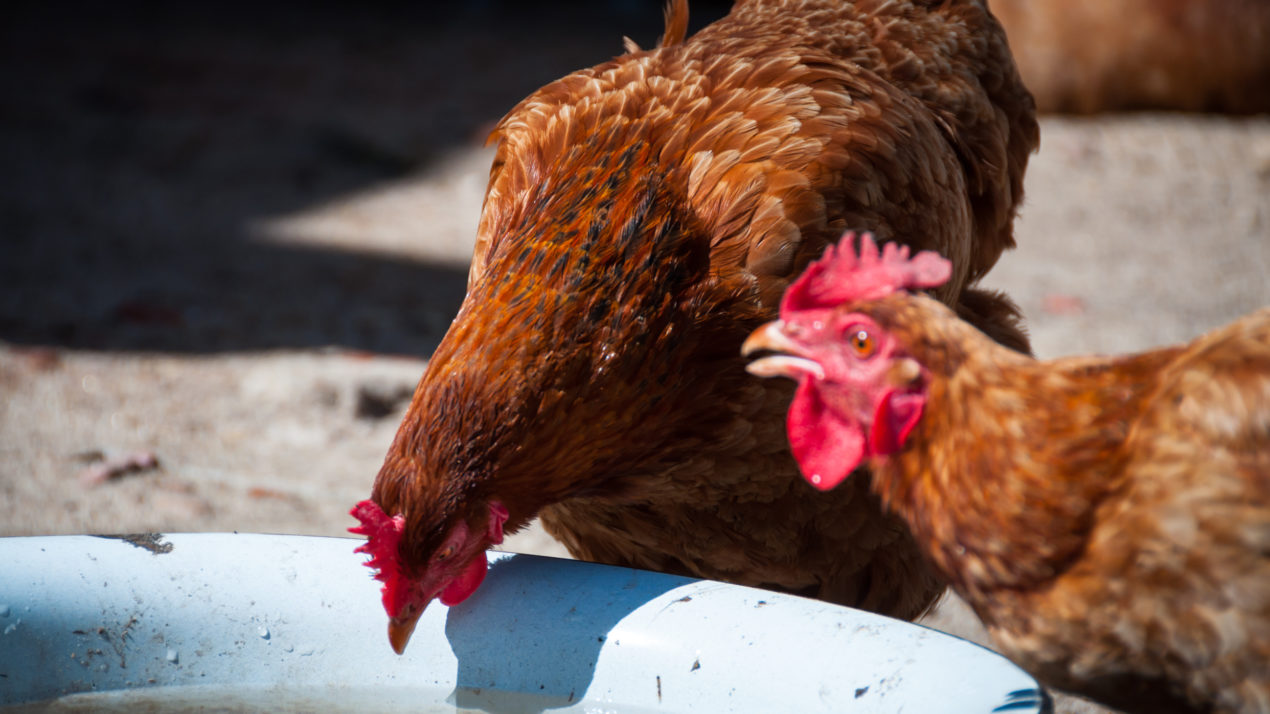
Just as our larger livestock life beef and dairy cattle, chickens get hot too! Nick Levendoski of Sunnyside Hatchery in Beaver Dam, Wisconsin was able to share tips about caring for poultry in the summer months. Whether you are a commercial producer or a backyard raiser, having cool and comfortable poultry will help them to remain productive and keep growing.
Depending on the poultry’s stage in production, the heat can affect them in different ways. Poultry are most comfortable in the 70-75 degree range. Once the weather starts reaching 80’s, 90’s and upwards, those birds will really start to experience heat stress. Growing chicks, especially broilers, feel the effects the most. The goal is to have them eating plenty to continue growing, but as eating produces heat within their bodies, the chicks become less motivated to make it to the feeder. Laying hens also feel the effects of warm temperatures. While the heat may not cause mass casualties in layers, it most definitely reduces egg production.
Cool, clean, fresh water is the most important tool to keeping poultry comfortable and healthy. The birds not only rely on water for hydration, but also for lowering their internal body temperature. Besides water, shade, ventilation and reduced activity can also help the birds stay cool. Levendoski says that feeding poultry in the early morning or at dusk can help reduce activity during the hottest part of the day.
While the heat is stressful for livestock and poultry, unfortunately it is an ideal environment for pests. Even though flies are very bothersome, gnats are actually the worst pest that poultry face during the summer. Use of different fly sprays indoors can be very effective when used correctly, as well as keeping the bird’s area clean and reducing pest-friendly environments. Levendoski says “keep those birds indoors as much as possible,” if you know you may have to deal with a large gnat population for some time.
Many steps can be taken to ensure that poultry stay comfortable and productive through the heat of the summer, on both commercial operations and in small backyard projects.

